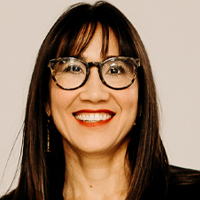
We’ve all heard the maxim: “Keep an open mind.” But as it turns out, the more intelligent you are, the more difficult this may be.
I was recently reading an article that referenced “The Intelligence Trap: Why Smart People Make Dumb Mistakes,” a book by science journalist David Robson. The trap that Robson posits is this: Not only are smart people just as likely to mess up as the rest of us, but they may be even more prone to doing so.
How can this be? These highly intelligent individuals don’t see the flaws in their own thinking. They may be less likely to take advice, or learn from their own mistakes. In all of their educated, expertized glory, they can be inflexible thinkers.
Does this sound familiar to you? It did to me. These takeaways supported several of my long-running observations about the attributes of successful clients. And more knowledge isn’t one of them. Just the opposite, in fact.
Smart Enough to Keep an Open Mind
I have noticed a particular pattern in the initial conversations I have with many new clients, often the female ones. Regardless of their age, these conversations often include one or more of the following statements:
- “I don’t know anything about this stuff.”
- “I have always hated math.”
- “This stuff gives me anxiety.”
You might not have guessed it, but many of the women making these comments are highly educated: They are physicians, accountants, attorneys. Yet when it comes to money matters, they don’t see themselves as educated or equipped if they haven’t specifically studied finance or economics. They are prone to magnifying what they don’t know, and diminishing what they do well, such as reasoning, learning and keeping an open mind.
Interestingly, I have found that because these clients are open to receiving information and guidance, they can actually be better positioned to make good decisions than those who consider themselves highly knowledgeable. They are the partners who are calm during a downturn, reminding their spouses not to panic and to stick to the plan.
Early on in my career, I also observed that successful clients maintain a healthy degree of emotional detachment from their money. It’s not that they don’t care; they do. But on a scale of zero interest or engagement to hourly views of market performance, they can be found somewhere in the middle. They tend to their affairs, but not to the extent that it consumes them. Their portfolio worth can fluctuate without busting their sense of self-worth.
By calling them successful I am not referring to a certain level or income or net worth, but rather, the fact that they are able to do what they set out to do with their money. Some people struggle to hold on to their money, others struggle to enjoy it; these clients are able to strike a sustainable balance.
Too smart for their own good
In contrast, we’ve probably all worked with clients at some point who do not have a degree of detachment from their money, and who hold on to their views just as tightly. They may be too smart for their own good. These individuals are not as open to receiving information and guidance, perhaps because they have multiple degrees and are experts in their given fields. Their overconfidence can lead them to make dangerous financial decisions, from looking for speculative investments to attempting market timing.
These clients can be very difficult to work with, and present a risk to your practice when they don’t follow advice. What to do?
First of all, if you are not already doing so, implement a thorough onboarding process. Not everyone is going to be a good fit for your practice, for a number of reasons. Why are they investing? What is the money for? Are they connected to a bigger “why” or are they chasing returns? What are their expectations of you — how often do they want to hear from you and what do they want to gain from working with an advisor? Do not skimp on these initial conversations. If you sense red flags, do not pass go.
If they are already on board, be sure that your conversations are about more than just performance. Guide them to a larger view, a different perspective of how money fits into their life. If they’ve done a great job accumulating, they may be able to reach their goals while downshifting their risk profile — show them that. Bring them back to “why” they started saving and investing in the first place — I doubt it was to beat the S&P 500 by 300 basis points each year. It’s more likely that they cited optionality, or security for their family. Refocus the lens on what is most important to them.
There are many reasons to engage spouses and partners in these meetings and conversations. You may not have realized it, but that partner who is less knowledgeable and more emotionally detached can be the greatest ally — to you, your client and their plan.
Karen Coyne, CFP, is the founder of Clarity Planning, an independent financial planning practice at Raymond James. She is also the podcast host of FRESH OFF THE VINE™, and loves to explore the myriad of ways that finances intersect with so many other aspects of our lives. She can be reached at karen.coyne@raymondjames.com. Clarity Planning offers investment advisory services through Raymond James Financial Services Advisors, Inc. Any opinions are those of Karen Coyne and not necessarily those of Raymond James.







